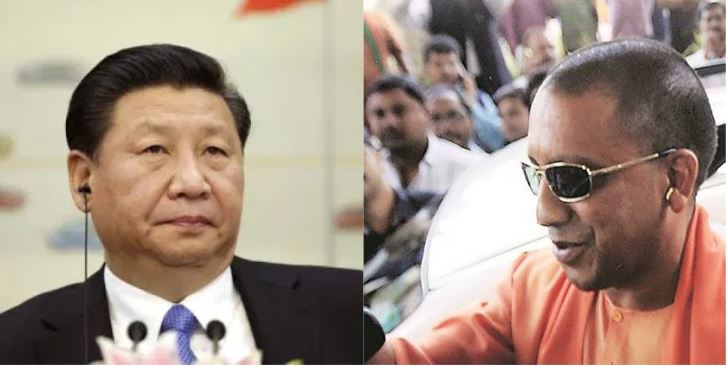Global Times, the mouthpiece of the Chinese Communist Party, has mocked India’s attempt to replace China as the ‘factory of the world’ in an op-ed published yesterday.
The recent reforms implemented by Yogi Adityanath government in Uttar Pradesh and the constitution of economic task force to attract companies shifting manufacturing out of China, has rattled the Xi Jinping led Communist government.
“India’s northern state of Uttar Pradesh is forming an economic task force to attract companies eyeing a manufacturing shift from China, according to media reports. However, despite such efforts, it is still delusional to expect economic pressure facing China amid the COVID-19 pandemic will allow India to become the world’s next factory. Radical voices saying that India is on track to replace China reflect nothing but nationalistic hubris,” wrote Global Times in editorial titled- India’s attempt to replace China is self-righteous.
Given the fact that Global Times is Communist Party owned newspaper and its sole aim is tell the world about what is Chinese viewpoint over any event or issue, the editorial tells us China is rattled with the attempt made by Indian government to make the country world’s next factory by capitalizing on disturbance in the global supply chain amid Coronavirus pandemic.
This is what you call Global impact of domestic actions.
Global Times, mouthpiece of China's Communist Party, is concerned over @myogiadityanath's attempt bring the companies exiting China to Uttar Pradesh.
Well done, @CMOfficeUP!! pic.twitter.com/Jfmpn1ky7L
— Amit Agrahari (@Amit_Agrahari94) May 19, 2020
The result of the steps taken by the Modi government and Yogi government in UP are already visible as German footwear brand, Von Wellx, has decided to move its factory operations from China to Agra, Uttar Pradesh; and this has rattled Chinese media and the government.
Many other South Korean and American companies based in various Chinese cities of China are in talks with representatives of Yogi government to shift their operations to Noida, Uttar Pradesh, which is IT hub of North India; and this has caused serious tension in Chinese policy circles.
“Tensions between China and the US are not an opportunity for India to attract relocating industrial chains, because the South Asian country is not prepared to receive such a manufacturing shift given its poor infrastructure, lack of skilled labor and stringent foreign investment restrictions,” wrote Global Times.
The United States, the world leader in outsourcing business with hundreds of thousands manufacturing units in China, is encouraging its companies to shift out of China by offering various incentives. Donald Trump also threatened to impose punitive measures against the companies which do not shift back, and China is worried that these companies would now shift to India.
In another article written by Qian Feng, director of the research department at the National Strategy Institute at Tsinghua University in Beijing, Chinese state media argued that- India could suffer from speculative attitude amid China-US conflict, and took a dig at Make in India program.
“Despite years of promotion of a “made-in-India” campaign and efforts to draw foreign investment in recent years, India still cannot take over China’s position in global industrial chains,” wrote Feng.
Although Feng is right that Make in India did not made much impact so far, the Coronavirus induced disturbance could prove watershed movement for “Make in India” as well as Indian economy.
The union government and state governments have carried many reforms in areas such as land, labor, and laws in the last few weeks. And these could prove effective in attracting manufacturing in many states with availability of cheap labour like Uttar Pradesh.
UP has the existing capacity to replace China as ‘factory of the world’ with a population of 22 crores and a young demography. With the outbreak of Coronavirus and the anger towards China, the companies of developed nations that have manufacturing units in China are looking for other avenues.
The Yogi government has shown the most pro-active approach in the last few weeks to attract these companies and this has resulted in ongoing talks with many Korean and American companies over shifting manufacturing units to the state, and this primary reason behind China’s insecurity.
